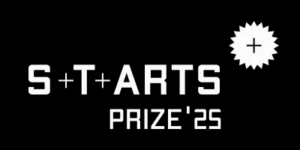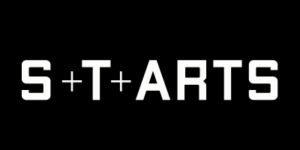Grand Prize – Innovative Collaboration: Für innovative Zusammenarbeit zwischen Industrie oder Technologie und den Künsten (sowie dem Kultur- und Kreativbereich im Allgemeinen), die neue Wege der Innovation eröffnen.
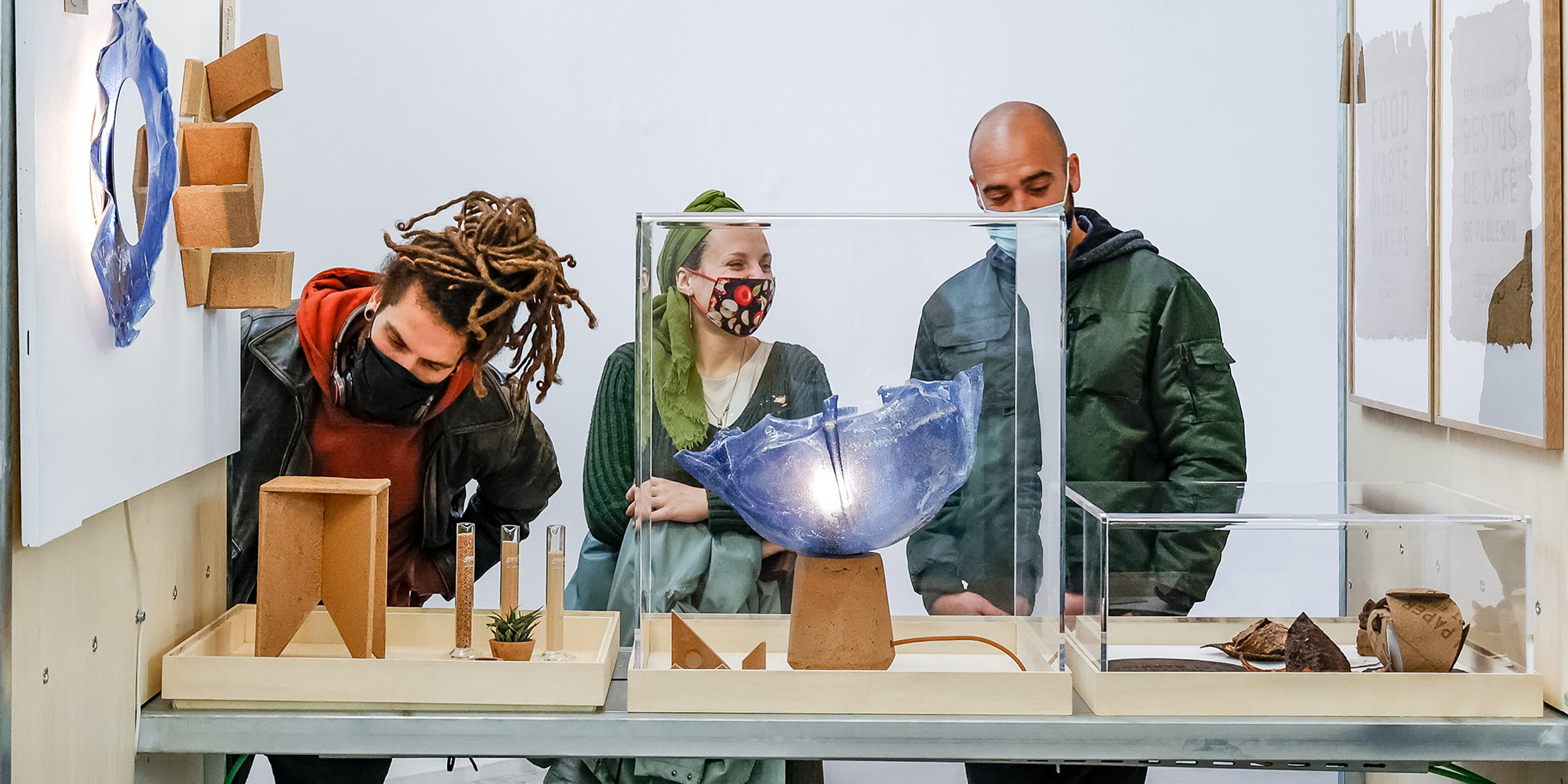
In den letzten 30 Jahren ist die Plastikproduktion um 620 % gestiegen.
Allein in Katalonien werden jeden Tag 720.000 kg Lebensmittel weggeworfen. Diese verschwendeten Lebensmittel, die sich auf 260.000 Tonnen pro Jahr belaufen, entsprechen dem Nahrungsbedarf von 500.000 Menschen für ein Jahr. Remix el Barrio wurde mit dem Ehrgeiz geboren, einen Lernraum vorzuschlagen, um neue Praktiken zu fördern und zu pflegen, die auf dem Lebensmittelabfallhandwerk basieren. Es ist das Ergebnis eines Pilotprogramms, in dem verschiedene Designer über Biomaterialdesign lernen und Projekte mit Lebensmittelabfällen unter Verwendung handwerklicher Techniken und digitaler Fabrikation erkunden. Remix El Barrio wurde im regenerativen Stadtteil Poblenou ins Leben gerufen, genauer gesagt im Ökosystem des Fab Lab Barcelona, in dem sich Designer zusammengeschlossen haben, um in Koproduktion neue Formen des Kunsthandwerks aus ihren individuellen Bestrebungen heraus zu entwickeln, wobei sie von regelmäßigen Peer-Learning-Sitzungen, dem Zugang zu Maschinen und Werkzeugen und dem Lernen von der Maker-Open-Source-Kultur, die überall präsent ist, profitieren. Jeder Designer hat einen kreativen, designgetriebenen Materialinnovationsansatz initiiert, bei dem sie einen wiederkehrenden lokalen Fall von Lebensmittelabfällen identifizierten, sich über dessen Eigenschaften informierten, untersuchten, wie man ihn am besten sammeln und verarbeiten kann, und sich zukünftige Anwendungen und Materiallebenszyklus-Erzählungen vorstellten.
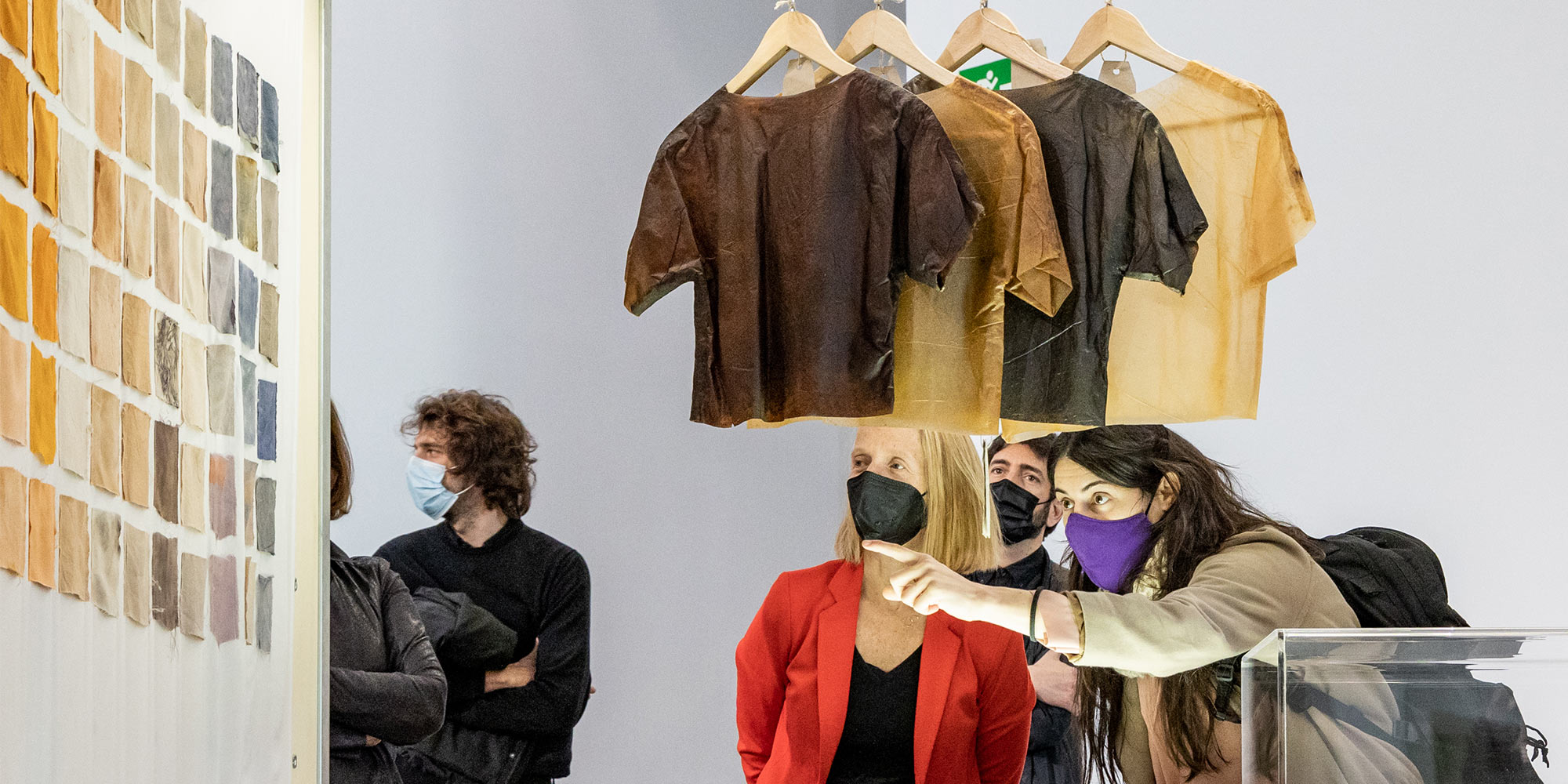
Dann experimentierten sie mit verschiedenen Rezepten für die Herstellung von Materialien mit angemessener Flexibilität, Festigkeit und Ästhetik und testeten verschiedene Herstellungstechniken, vom Gießen über Extrusion, Laserschneiden, CNC-Fräsen und 3D-Druck. Jedes Projekt konnte in eine iterative Schleife des Prototypings eingeführt werden, die durch die intrinsische Kreativität der Menschen und die Interaktion mit Gleichgesinnten, Labor-Gurus, externen Experten, lokalen Anbietern und zukünftigen Nutzern angetrieben wurde. Dies führte zu einer großen Vielfalt von Projekten mit herausragenden zirkulären Erzählungen, Materialien, Produkten und Dienstleistungen:
- KOFI: Papier- und Verpackungsherstellung aus Kaffeeschalen, von Dihue Miguens Ortiz
- RE-OLIVAR: Designobjekte wie Lampen, Stühle und Fliesen aus Olivenkernen herstellen, von Silvana Catazine y Josean Vilar von Naifactory
- EN(DES)USO: Eine poetische Annäherung an Materialitäten durch Verwendung von Eierschalen und Yerba Mate für Design-Artefakte, von Lara Campos
- SQUEEZE THE ORANGE: Eine Jacke aus veganem Fruchtleder auf Basis von Orangenschalen, von Elisenda Jaquemot, Susana Jurado Gavino y Nuria Bonet Roca
- COLORES, Kraftvolle natürliche Farbstoffe aus Avocadokernen, von Giorgia Filippelli
- DULCE DE PIEL, Herstellung von Seifen aus gebrauchten Ölen, von Clara Davis
- ORGANIC MATTER, Entwerfen einer Plattform über regeneratives Kreislaufdesign, von Laura Freixas
- LOOK MA NO HANDS, 3D-Drucken von Keksen aus Fruchtschalen und -häuten, von Secil Asfar
- CIRCULAR GOS, Umweltbewusste Herstellung von Snacks für Haustiere aus Speiseresten aus dem Restaurant, von Arleny Medina vom Leka Restaurant
- BIOPANTONE, in gemeinschaftliches Kunstwerk aus der Farbpalette der Natur mit natürlichen Farbstoffen, von Anastasia Pistofidou und Fabricademy-Absolventen 2019.
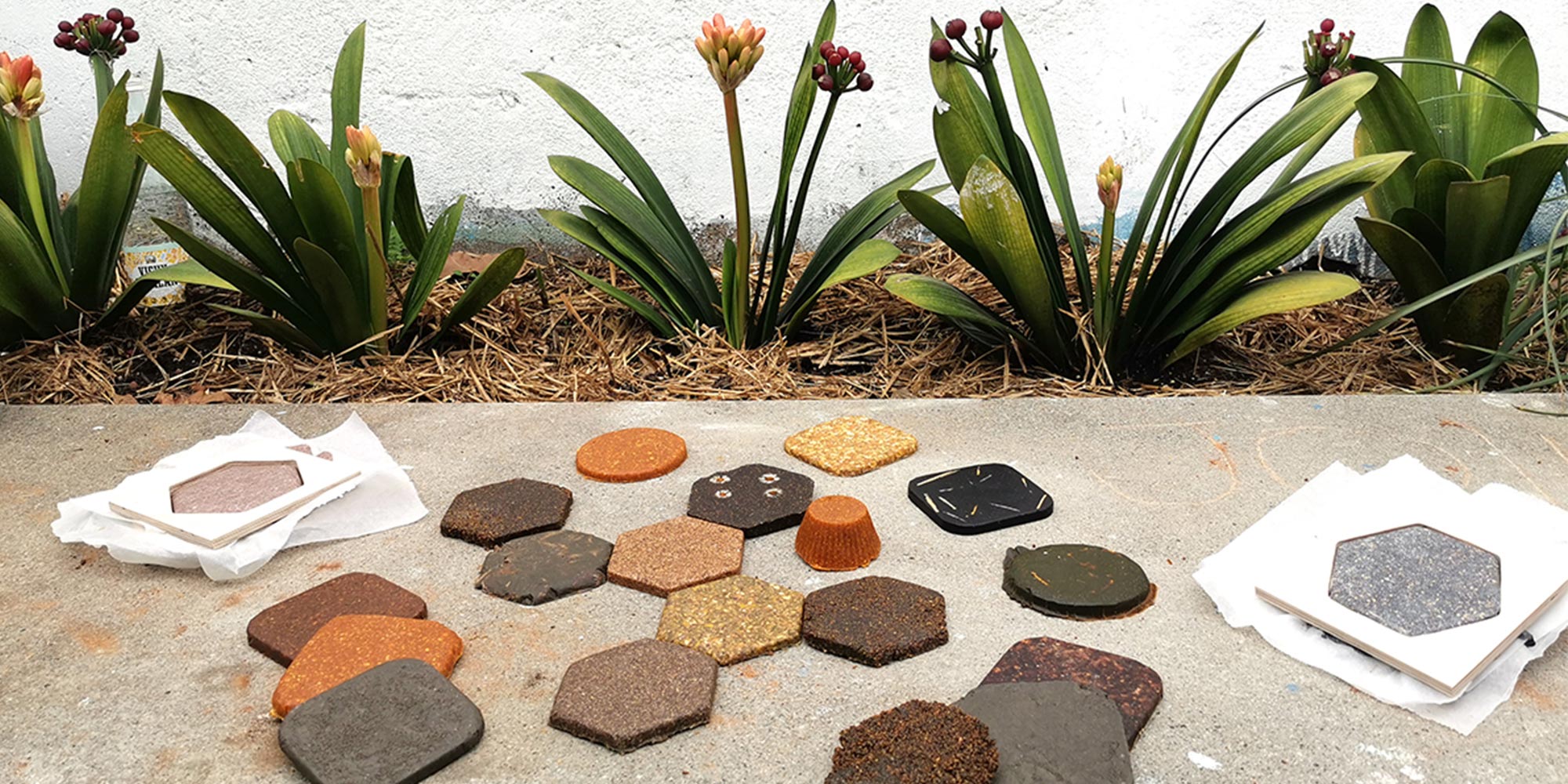
Über das Pilotprojekt hinaus hat sich *Remix* in ein Kollektiv verwandelt, das die Wirkung der Kreislaufwirtschaft erlebt, nicht nur durch die Herstellung von Materialien aus lokalen Lebensmittelresten, sondern auch durch das Erforschen von Zusammenarbeit, Inklusivität und Selbstmanagement hin zu gemeinsamem Wissen mit lokalen Akteuren und globaler Ausstrahlung.
Das Leitmotiv der Remixers: „Wir erforschen neue Praktiken, um unsere Zeit und unsere Ressourcen nicht länger zu verschwenden und auf lokaler Ebene zu handeln, um sozialere Kreislaufpraktiken zu fördern. Wir arbeiten zusammen und binden lokale Akteure aus der Nachbarschaft wie Restaurants, urbane Gärten und Nachbarschaftsvereine ein, um ein lokales Ökosystem der Kreislaufwirtschaft zu fördern. Wir bekräftigen das Potenzial von Co-Design, digitaler Fertigung und Handwerk, um unsere Art zu produzieren, zu konsumieren und Bewusstsein für das ökologische Ökosystem zu leben neu zu erfinden. Wir fordern die Notwendigkeit, sich neue Modelle und Techniken vorzustellen, um mit dem, was wir gemeinhin als „Abfall“ bezeichnen, innovativ umzugehen. Wir schätzen innovative und künstlerische Praktiken als Motor für sozialen Wandel. Wir sind davon überzeugt, dass gelebte gemeinsame Designerfahrungen die Befähigung von Räumen zur Umsetzung einer Kreislaufwirtschaft erleichtern können.“
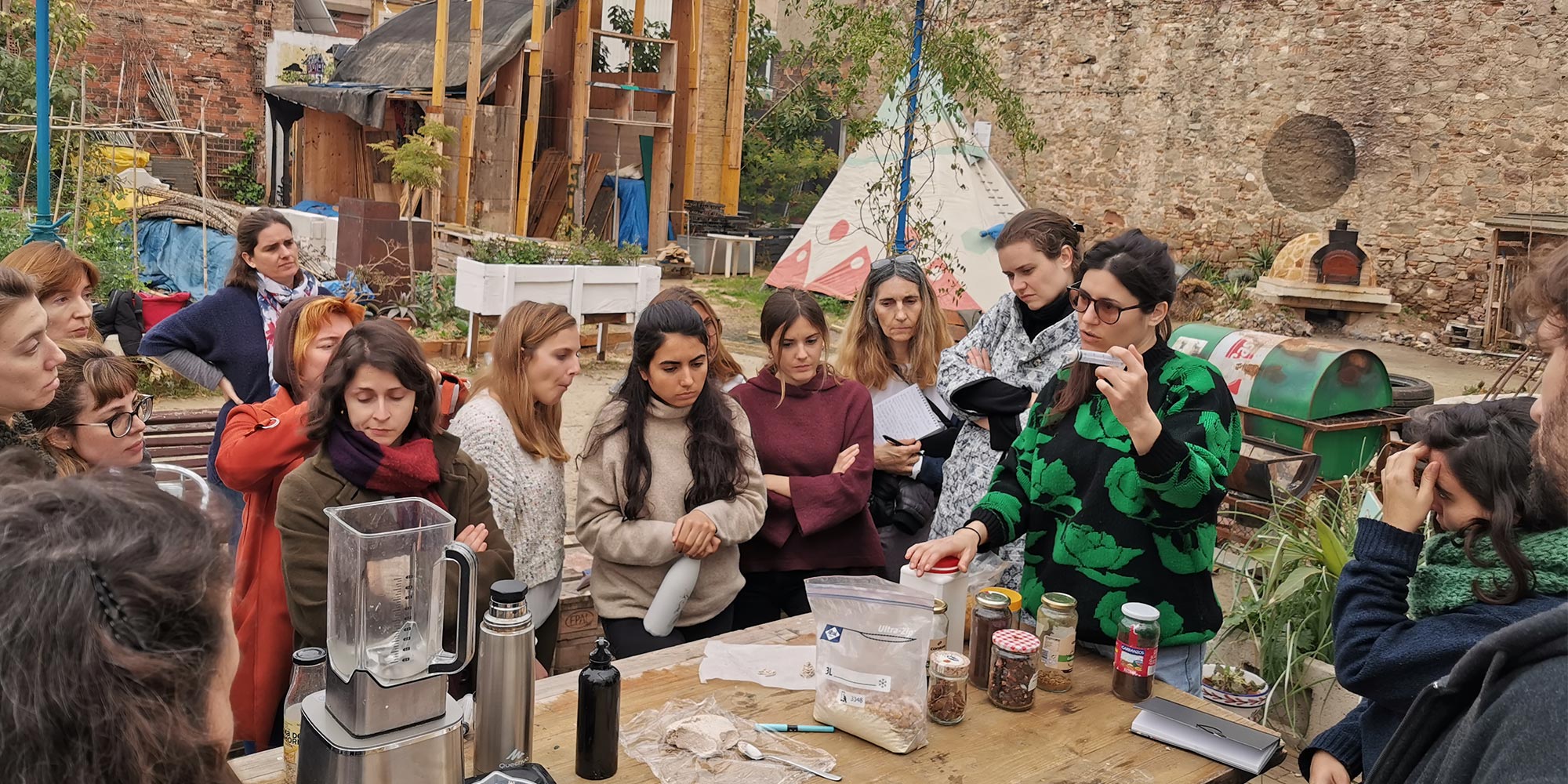
Credits
Fab Lab Barcelona at IAAC represented by the project team Anastasia Pistofidou, Marion Real and Milena Juarez Calvo. Fab Lab Barcelona is an innovation center rethinking the way we live, work, and play in cities. Located at the Institute for Advanced Architecture of Catalonia (IAAC), it provides access to the tools, knowledge and means to educate, innovate and invent using technology and digital fabrication to allow anyone to make (almost) anything. The institution supports contemporary educational and research programs related to the multiple scales of the human habitat. Fab Lab Barcelona is also the headquarters of the global coordination of the Fab Academy program in collaboration with the Fab Foundation and the MIT’s Center for Bits and Atoms.
Anastasia Pistofidou is a digital fabrication expert, wearables and e-textiles practitioner, biomaterial maker, and educator. Part of the Fab Lab Barcelona at IAAC team since 2011 as a tutor, advanced manufacturing office manager, coordinator and researcher she is currently leading the Materials and Textiles strategic area. In 2013 she co-founded FabTextiles and in 2017 she co-founded Fabricademy, a new Textile Academy, a globally distributed program that explores the implications and applications of new technologies at the intersection of textiles, digital fabrication and biology. She also works as a content curator for Fab Foundation.
Marion Real is a systemic design researcher exploring co-creation processes in the territorial transformations toward circular economies and cosmopolitan localism. She is currently working at Fab Lab Barcelona at IAAC where she has coordinated the 10 pilots in the SISCODE project, including Remix el Barrio. She is also associate researcher at Estia, Chaire
Bali and Centre for Circular Design.
Milena Juarez Calvo is a Brazilian environmental engineer with master’s in Interdisciplinary Studies in Environmental, Economic and Social Sustainability and specialization in Urban and Industrial Ecology at the Universitat Autònoma de Barcelona. She currently coordinates the CENTRINNO Barcelona pilot at IAAC and works as an action researcher for the SISCODE, FoodSHIFT and REFLOW EU projects.
The Remixers collective has emerged as a group incubated in Fab Lab Barcelona within the SISCODE EU project pilot. They experience the value of co-creation and open knowledge and formed a group of like-minded individuals who defend sustainability, cooperativism, shared infrastructures, and circular glocalism. They wish to further collaborate in establishing a space to experiment with local food waste and biofabrication with a goal to connect with local services, activate circularity, and scale up by collaborating with open-minded and visionary industries. The Remixers is formed by Arleny Medina, Clara Davis, Dihue Miguens, Elisenda Jaquemot, Giorgia Filipellini, Joseán Vilar, Lara Campos, Laura Freixas, Nuria Bonet Roca, Secil Asfar, Silvana Catazine, Susana Jurado Gavino and local agents from Poblenou and Barcelona.
Remix el Barrio is part of the SISCODE project that has received funding from the European Union’s Horizon 2020 Research and Innovation under grant agreement programme nº788217.
Jury Statement
Remember the 19th century Arts & Crafts Movement? Remix el Barrio can be seen as translation of Arts & Crafts into our times, confronting well-known contemporary issues with manufacturing and consumption in our daily life. Remix El Barrio is a collective of designers who propose projects with food leftovers using artisan techniques and digital manufacturing. They collaborate with agents from the Poblenou neighborhood to promote a more local and circular ecosystem. In their manifesto they want to “promote artisan-manufacturing sites and designer/craftsman cooperatives in the development of short-loop products, creating direct synergies with neighborhood actors, facilitate the access and the rehabilitation of abandoned sites, support logistics, and partnerships between local actors.”
The jury was most impressed by the wide array of beautifully up-cycled products made from waste—ranging from dye colors made from avocado stones, bioplastics out of orange peel, soaps from used oil, or paper made of coffee peels. Their initiative, Organic Matters, explores the intersection between design, biology, chemistry, technology, material science, community, and self-sufficiency. It could be interpreted as a reformulation of the STARTS idea itself.
